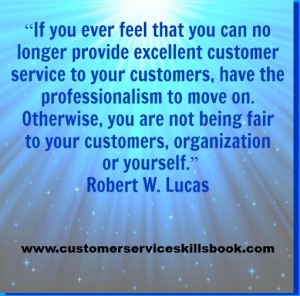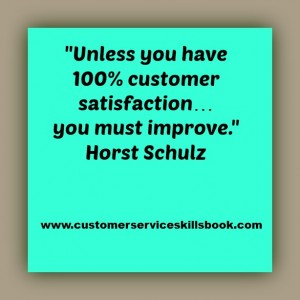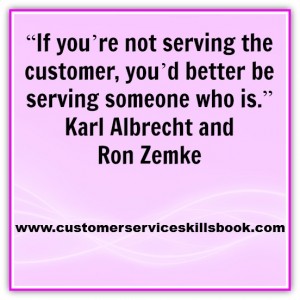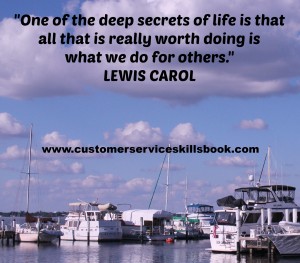Three Positive Non-verbal Communication Cues
for Customer Service Representatives
Many customer service representatives struggle to gain and maintain strong relationships with their customers. Often, this is due to their inability to effectively communicate face-to-face with others. In many instances, they do not even realize that their nonverbal communication style is sending the wrong message, especially their nonverbal communication cues.
Since numerous nonverbal communication studies have found that the unspoken messages sent with the body, face, and hands often overshadow the words that people use, it is crucial for service providers to master the art of body language.
The following are three positive nonverbal communication areas on which you might focus to improve if you want to enhance communication and relationships with customers:
Direct eye contact (based on culture) – In Westernized cultures, making eye contact as an important means of communicating sincerity, interest, honesty, and other factors is taught early in life to children. When interacting with others, use intermittent (do not stare) direct eye contact in conjunction with periodic smiling and other positive non-verbal cues to show that you are friendly and have the other person’s interest in mind.
One important thing to keep in mind about eye contact is that it often varies in different cultures and sub-groups (e.g. Caucasians, African-Americans, women, and men). Do some research on other cultures and groups to see how eye contact is perceived and adjust your communication style accordingly when dealing with customers with those backgrounds. Monitor your customer’s reaction to your cues and modify as necessary and do not make assumptions. If someone reacts and you are not sure why to ask them to clarify.
Smiles – Often perceived as the universal language, smiling can communicate openness, friendliness, interest, and other aspects relevant to sound relationships. Use smiling when appropriate during conversations (e.g. upon meeting, when the conversation is going in a positive direction, or when the other person smiles) and you may see your bond with others start to form.
Facing the customer – Too often in today’s busy workplace, a customer service representative is busy multi-tasking when a customer approaches. As a result, they might have their head down or be facing in another direction while focusing on something else. To build and maintain good customer-provider relationships, stop what you are doing and give undivided attention to the person in front of you in order to help build brand and customer loyalty.
For additional ideas and strategies for effectively using non-verbal cues, get a copy of Please Every Customer: Delivering Stellar Customer Service Across Cultures.
About Robert C. Lucas is an expert with Non-Verbal Communication Cues
Bob Lucas has been a trainer, presenter, customer service expert, and adult educator for over four decades. He has written hundreds of articles on training, writing, self-publishing, and workplace learning skills and issues. He is also an award-winning author who has written thirty-seven books on topics such as, writing, relationships, customer service, brain-based learning, and creative training strategies, interpersonal communication, diversity, and supervisory skills. Additionally, he has contributed articles, chapters, and activities to eighteen compilation books. Bob retired from the U.S. Marine Corps in 1991 after twenty-two years of active and reserve service.










